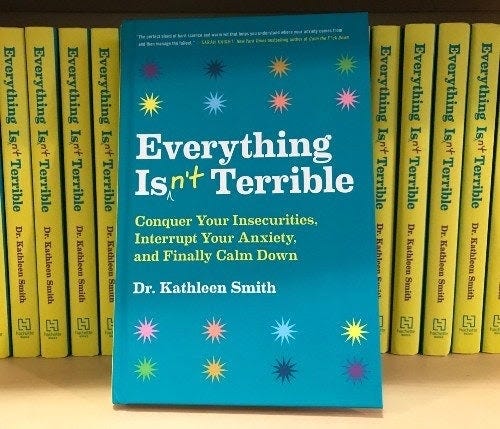Knowing People So Well, We Don't Know Them at All
How anxiety fills in the blanks in our relationships.
When do you assume someone doesn’t like you? Or someone is annoyed with you?
I’ve been thinking about how anxiety in a relationship system distorts this reality. Because the more anxiety there is, the more we tend to be preoccupied with what people think of us. The more we take a look, or a moment of silence, or a weird sentence in an email, and conclude our study.
This anxiety works against us, because often more contact is what would dispel these assumptions. But contact is often the last thing you want when you feel left out, or assume someone is aggravated with you.
Here’s what I have noticed:
More assumptions after group interactions. Often when people are only interacting in a group (friends, family, work meetings, etc.), and not on a person-to-person level, it’s harder to be factual about another person’s behavior. It is fascinating what one-to-one contact can dispel or clarify.
More assumptions after positive interactions. If I’ve had a day where I’ve gotten a lot of positive feedback from people, you can bet that it’s easier to interpret neutral interactions the following day as negative. It’s easy to get used to those functional boosts from attention and approval, and then have anxiety go up the next day when they aren’t there.
So here are my questions for you this week.
Who do you really think you have figured out?
And do you have quantity and quality of contact to back up your conclusions?
Often these are the people we’ve ceased to be curious about, because we have a story we tell ourselves about them. As I’ve written about before, one that’s full of adjectives and not many verbs.
Maybe it’s somebody at your work, with whom you’ve never had a one-to-one conversation. Or a deceased relative that people say the same things about, so you’ve never bothered to learn the facts of their life. Maybe it’s your sister’s spouse, because she’s always complaining about him. Or a friend of a friend, one you assume doesn’t like you.
Or maybe it’s your spouse, because you’ve fallen out of the practice of asking good questions. Or your child, because you’re so focused on fixing them, you’ve forgotten how to let them surprise you with what they can do.
What an interesting practice it would be do sit down every now and then and ask yourself, “Who do I really think I’ve got figured out?” And then to invite yourself into contact, into facts, into their actual thinking, so that anxiety isn’t telling the story.
To me this is a key difference between a more cognitive approach, where you’d practice talking yourself out of these irrational thoughts, and systems thinking. Systems thinking is more about relating yourself out of them. Change happens in the relationships. In the effort to get more objective about self and others. The only way we can see what’s real is to learn about the past and to show up in the present.
News from Kathleen
Appreciate content like this? Consider becoming a paid subscriber, to receive additional newsletters, worksheets, and other resources.
There’s another chance to win an early copy of my new book for folks in the US.
Want a signed, personalized copy of my next book, TRUE TO YOU? You can preorder it from my neighborhood bookstore, East City Bookshop. I’ve also created a digital bonus workbook for newsletter subscribers who preorder. More on that very soon!
Want to read more of my writing? Get my book, Everything Isn't Terrible, from Amazon, Barnes and Noble, or your local bookstore (best option).
Want a free anxiety journal with the book? Calming Down & Growing Up: A 30 Day Anxiety Journal includes thirty daily prompts to help you reflect on and respond to your anxious behaviors. To receive a copy, just email me your receipt of Everything Isn’t Terrible.
Email me if you’re interested in Bowen theory coaching or want me to speak to your group or workplace. Follow me on Linkedin, Facebook, or Instagram.
Want to learn more about Bowen theory? Visit the Bowen Center’s website to learn more about their conferences and training programs.







This hit hard: "Because the more anxiety there is, the more we tend to be preoccupied with what people think of us. The more we take a look, or a moment of silence, or a weird sentence in an email, and conclude our study."
I find that my anxiety is exacerbated when the communication takes place through a text only forum. So much of human communication is non-verbal so when texting or emailing, I often fill in the gaps with negative assumptions (this person is annoyed or mad, they don't like me).
Your point that more contact usually dispels these assumptions will stick with me the next time I've made up a story around my communication with someone, especially if it took place over text/email.
"Or your child, because you’re so focused on fixing them, you’ve forgotten how to let them surprise you with what they can do." These words caught me completely, thank you.